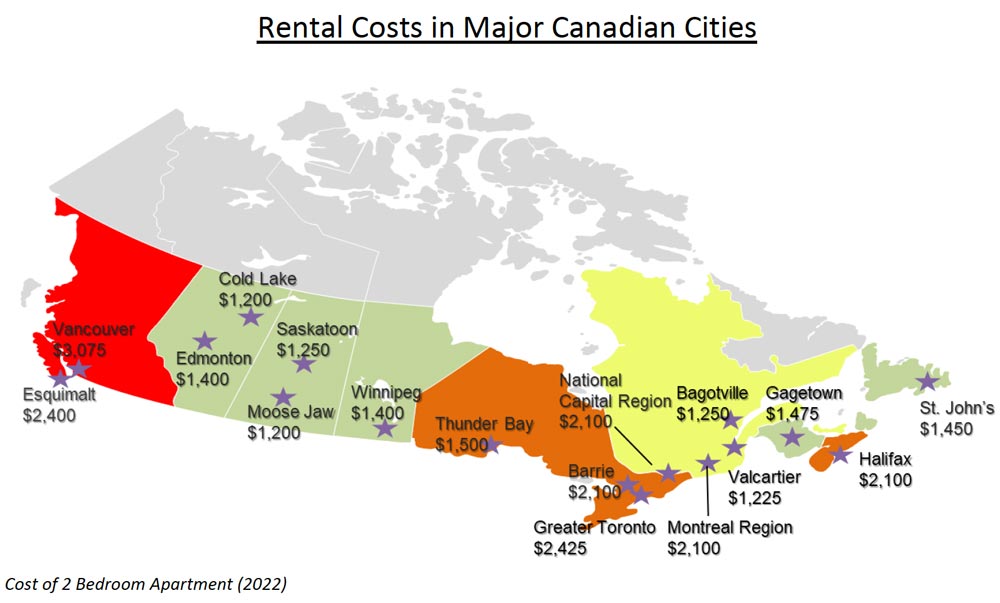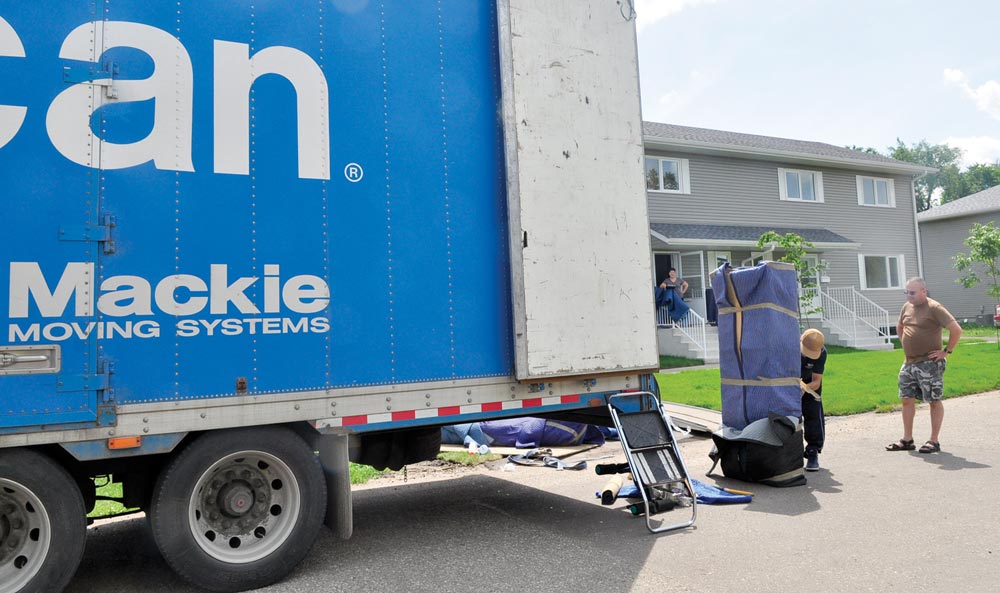
Stag Special
From April 2009 until this past fall, the Canadian Armed Forces (CAF) Post Living Differential (PLD) policy has been under review by Treasury Board Secretariat (TBS), the Department of National Defence (DND) and the CAF.
This review has concluded, and a new Canadian Forces Housing Differential (CFHD) policy will replace the PLD, effective July 1.
When compared with Canadian housing costs and average household incomes, the majority of CAF members’ salaries have enabled them to afford housing in most posting locations in Canada. However there have been members who have struggled to find or afford suitable housing in certain geographical regions.
The purpose of the PLD was to reduce any negative financial impact that CAF members and families experienced when posted to a region with a cost of living above that of the standard city (Ottawa/Gatineau).
Under PLD, the continued use of the NCR as the ‘Standard City’ was having a negative impact to our members. CFHD moves the CAF away from a “one size fits all” solution and helps us to shape, with as much precision as possible, where the need for a housing differential exists, and allows for a continual adjustment of the rates along with the changing economic situation.
Under CFHD, the focus is entirely on housing. Both the standard city and the Post-Living Differential Areas (PLDAs) have been eliminated from consideration. Unlike PLD, CFHD only considers housing costs for your place of duty (e.g., Barrie ON, Medley AB, Kingston ON) when calculating your monthly benefit, as opposed to your residential address.
This means that CAF members who lived in areas that were ineligible for the PLD — such as Ottawa, Comox, and Winnipeg — will be eligible for the CFHD, should they meet the other relevant criteria.
CFHD is also based on an equitable rather than equal approach. Extensive policy review has helped identify that some of the CAF’s lower-salaried members are struggling with the purchase or rent of their home in more expensive locations.
CFHD has been designed to specifically address this gap so that no CAF member feels financially burdened due to housing costs when being relocated within Canada. It will also keep what they are spending on housing within the Canadian average for their before-tax income.
CFHD complements the wider reconstitution efforts to develop and maintain issue-specific directives, inclusive of GBA(Plus) analysis, to better support CAF members.
This policy change has been deliberately timed to align with an economic increase (ie pay raise) for eligible CAF members. Non-Commissioned Members, General Service Officers and pilots in the rank of lieutenant-colonel and below, as well as all Medical and Dental Officers will receive a compounded pay increase of 10.4 per cent, covering retroactive increases starting April 1, 2021.
The economic increase is designed to address some of the other living expenses addressed by the former PLD calculation — such as for groceries, transportation, and childcare. These changes mean that CAF members should look at their salary as the balancing weight on the broader “cost of living” scale, and that when combined, as many members as possible should see an overall increase in total pay and allowances under this plan to transition from PLD to CFHD.
CFHD will be personalized based on a small handful of factors: salary, place of duty as stipulated on members’ current (or new) posting messages, and whether you reside with one or more CAF members entitled to an CFHD calculation — including a zero calculation.
Your CFHD calculation is determined (or confirmed) annually, whether you relocate that year or remain posted in the same geographical location. It is the value of a pre-determined ‘average rent’ comparator value for the geographical location of your place of work (military posting) minus a fixed percentage (25 per cent) of your gross monthly salary.
The average rent comparator values across Canada will be determined annually by a third-party contractor. There are additional limitations and caveats to take into account in calculating the differential, including whether you reside in military housing.
We understand you will have a lot of questions related to this new policy. To better understand the policy and how it will affect you, make sure to familiarize yourself with the resources below. We also encourage members to speak with your chain of command and orderly room over the spring timeframe.
Our people remain the core of everything we do to deliver on our mandate. Investing in our people is the most important commitment we can make, and part of that effort is ensuring that no CAF member is unable to afford housing. CFHD ensures that CAF members receive the assistance they need when posted from location to location.
Additional Resources:
https://www.canada.ca/en/department-national-defence/services/benefits-military/pay-pension-benefits/benefits/canadian-forces-housing-differential.html
https://author-canada-prod.adobecqms.net/editor.html/content/canadasite/en/department-national-defence/corporate/video/leadership/2023/03-21-canadian-forces-housing-differential-economic-increase.html
• • •
According to BGen Virginia Tattersall, the military’s director general of compensation and benefits, more military members overall will receive the housing benefit under the new taxable benefit policy.
Chart shows rental costs in major Canadian cities: Cost of two-bedroom apartment (2022). Posting season for many military members sees them move on to a Base or Wing and live in rental RHUs, while some might purchase a home in the hinterland of where they are working for the CAF. Photo Jules Xavier/Shilo Stag


